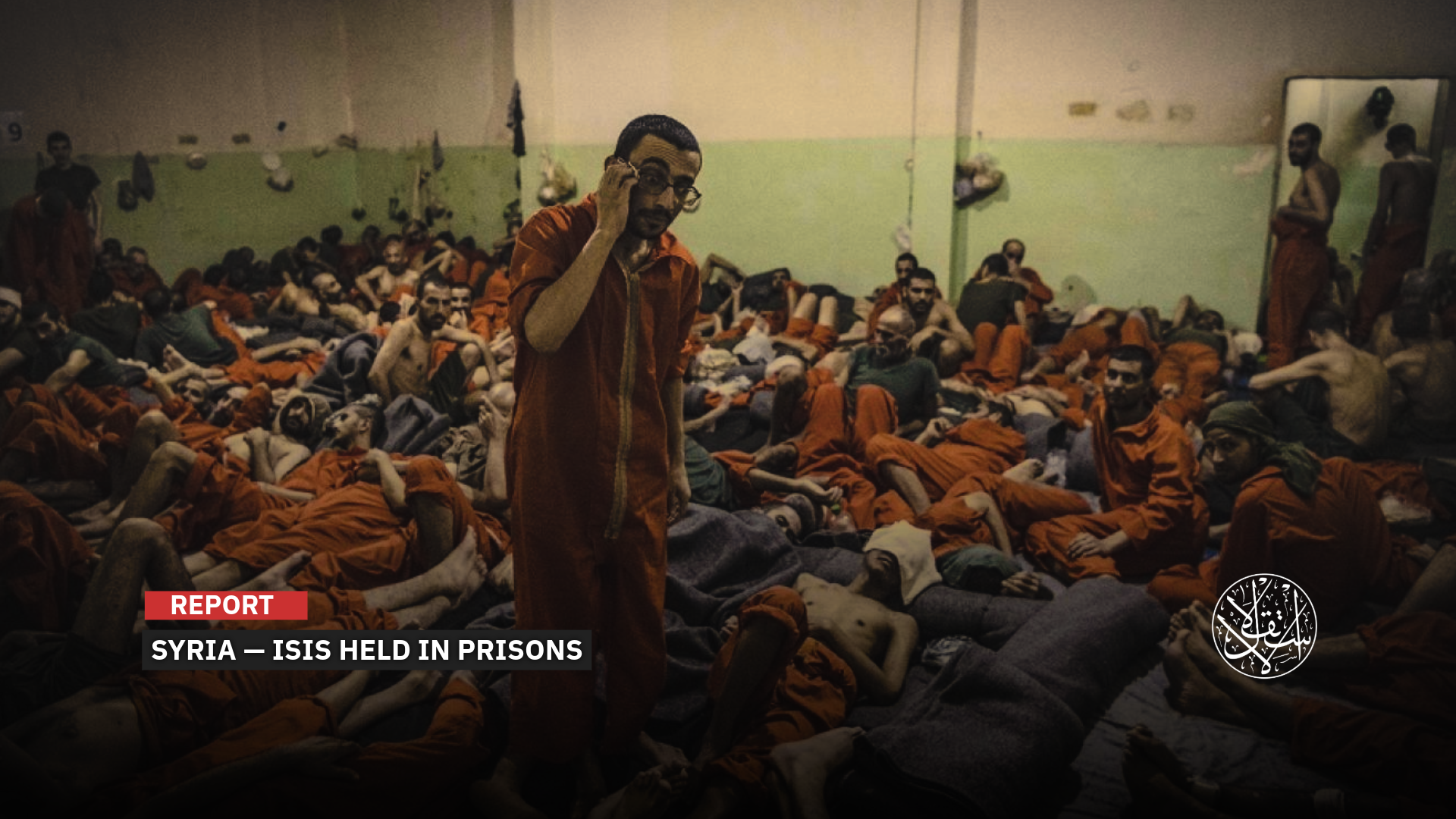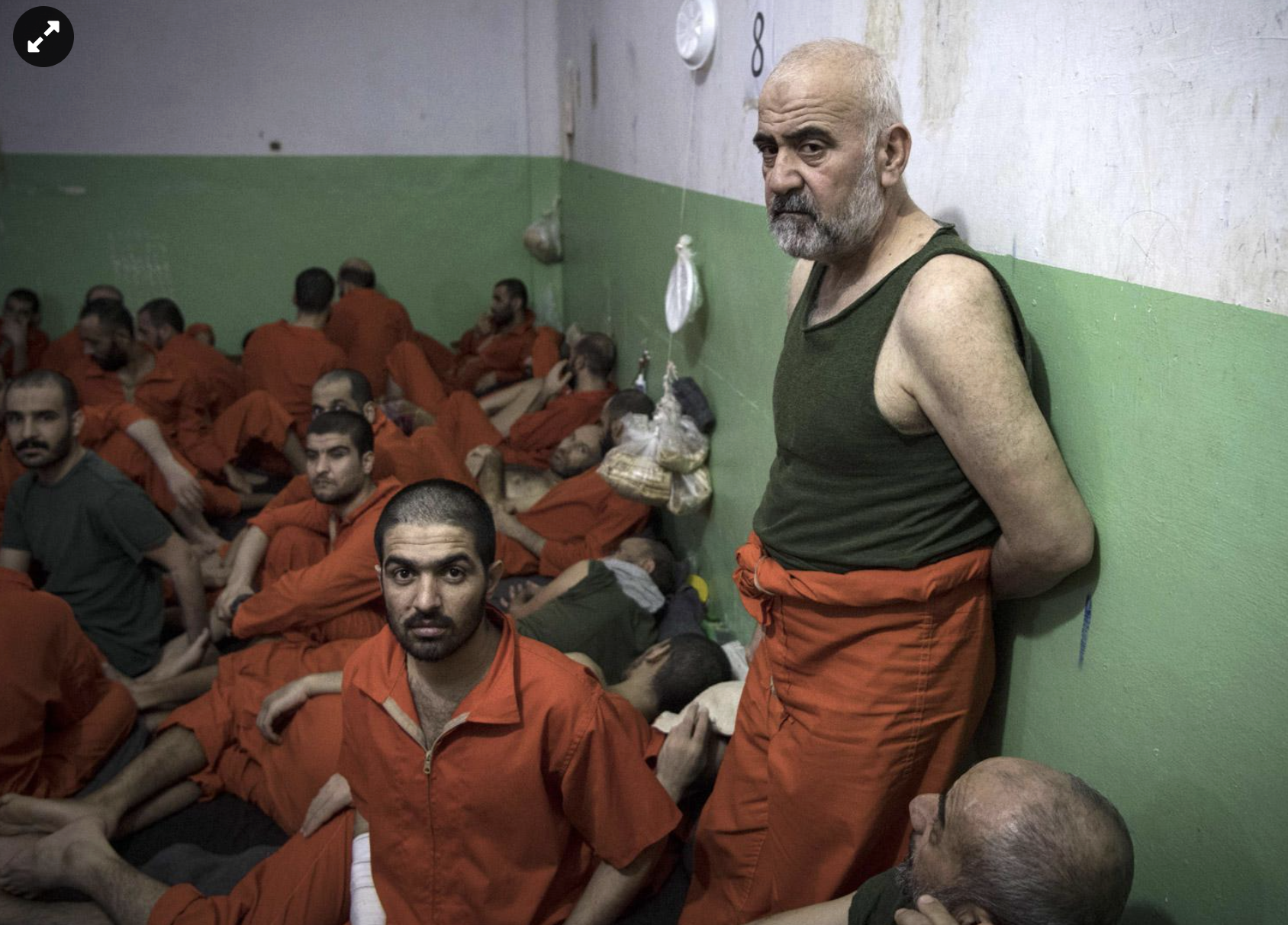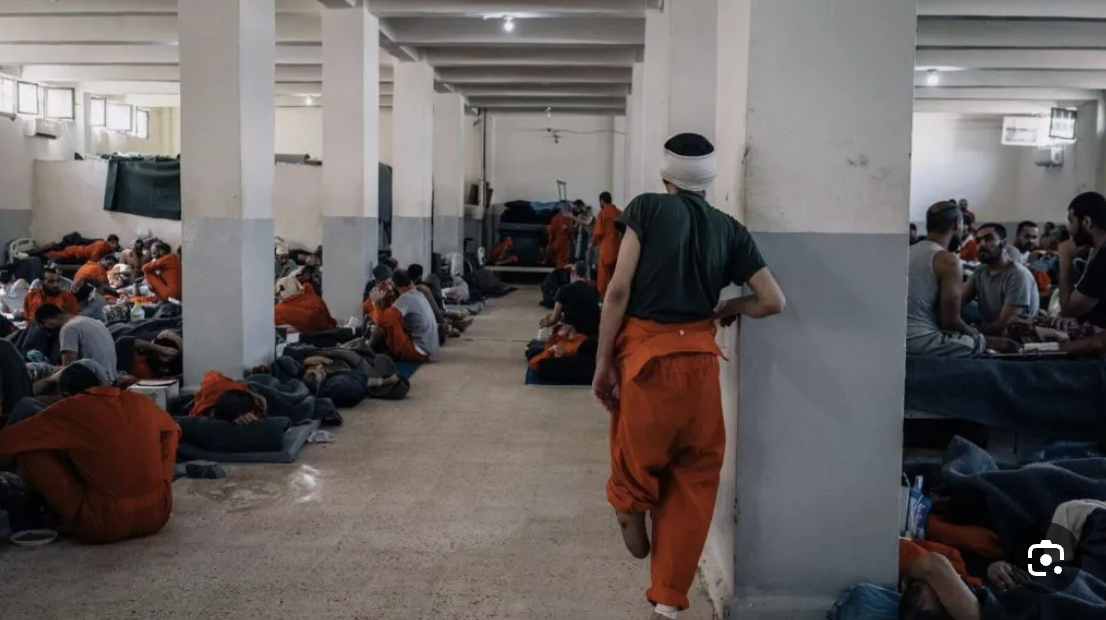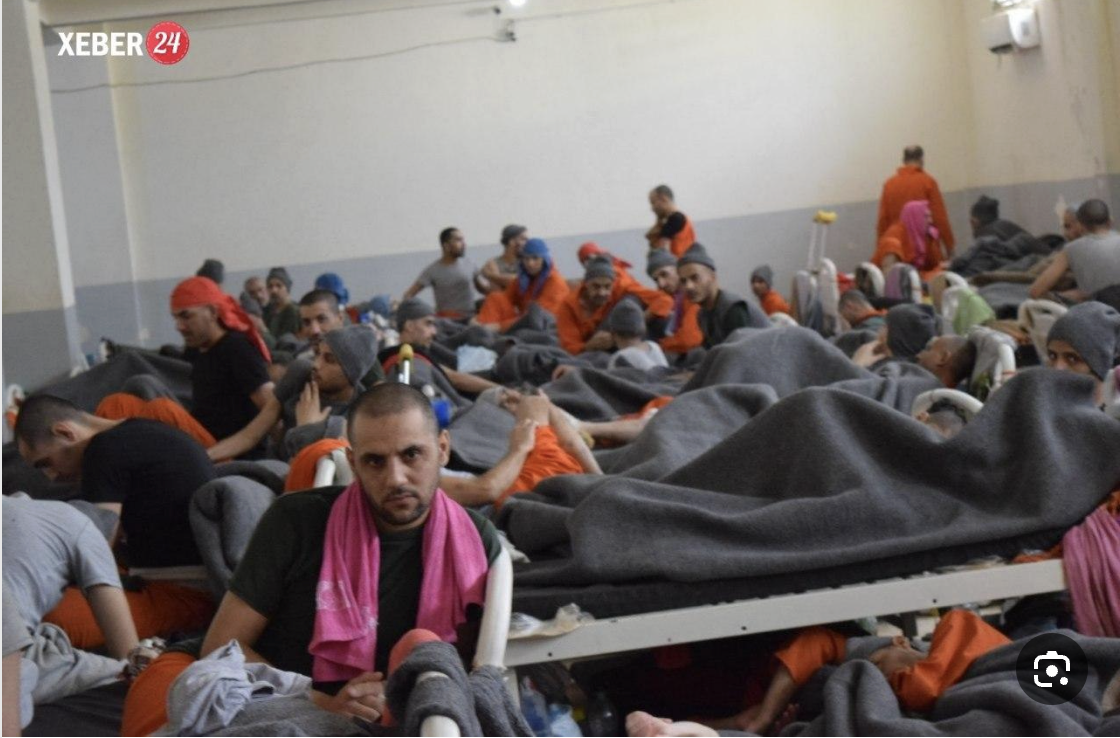Why Is the U.S. Pressuring Countries to Take Back ISIS Detainees from Syria?

“The sensitive fate of ISIS detainees requires resolving this issue."
The U.S. Central Command has officially launched a push to address the fate of camps and prisons in northeast Syria, where the Syrian Democratic Forces (SDF) hold ISIS fighters and their families.
CENTCOM is urging countries to take back their citizens who remain in overcrowded camps and in SDF-run prisons backed by American troops.

A Special Joint Repatriation Cell
CENTCOM commander Adm. Brad Cooper urged nations to speed up the repatriation of ISIS detainees during a September 26 meeting at the United Nations.
Cooper delivered remarks at the High-Level Conference on the Repatriation of Persons from al-Hol, Surrounding Camps and Places of Detention, held at the UN headquarters in New York City. He encouraged expediting the return of detainees and displaced persons to their home countries and announced plans to establish a new joint coordination process.
“Earlier this month, I visited al-Hol in person and saw first-hand the need to accelerate repatriations,” Cooper told conference attendees. “There has been progress for sure, and I look forward to supercharging this effort together with all of you.”
He revealed that CENTCOM is preparing to set up a special Joint Repatriation Cell in northeast Syria to coordinate the return of detainees to their home countries.
On September 12, Cooper met with Syrian President Ahmed al-Sharaa at the presidential palace in Damascus. The meeting was joined by U.S. envoy to Syria Thomas Barrack and focused on counter-ISIS operations inside the country.
Despite the fall of ISIS’s territorial rule, the group remains capable of launching deadly attacks against civilians and security forces in Syria’s new political landscape. Restoring security nationwide has been one of the toughest challenges for the authorities who took power after the ouster of Bashar al-Assad in December 2024.
Damascus has moved quickly to strengthen regional and international partnerships to fight ISIS, whose sleeper cells continue to pose a threat. Washington’s renewed focus on the fate of foreign ISIS families comes as it presses the Syrian Democratic Forces to move toward full integration with the rest of the new Syrian state.
The detention camps and prisons that hold thousands of ISIS fighters and their relatives remain one of the most sensitive security issues in Syria. Foreign nationals in particular are viewed as a potential flashpoint. ISIS cells have tried repeatedly to storm facilities in al-Hasakah province to free them but failed.
Many of the detainees’ children are growing up in the camps in rural al-Hasakah, raising fears that the group’s ideology will take root in the next generation.
Since the fall of Assad’s regime, most countries have been reluctant to take back their citizens who joined ISIS after its rise in 2014. The SDF, backed by U.S. logistics, military support and intelligence, runs all detention facilities in al-Hasakah.
CENTCOM estimates that al-Hol camp holds about 54,000 people—roughly 27,000 Iraqis, 18,000 Syrians and about 8,500 foreign nationals. The United Nations says the foreign families come from 60 countries, including 3,177 women and the rest are children.
Older children are housed in the Ahdath prison in the village of Til Ma3roof in the northeast, while U.S. forces operate the high-security Roj camp near the town of al-Malikiyah, reserved for the wives and children of ISIS leaders.
Other ISIS fighters are held in SDF-run prisons in al-Hasakah, including the notorious Ghuwayran and Sina’a prisons as well as the Kamba al-Bulgar prison east of ash-Shaddadi.
All of them were captured after battles between ISIS and the SDF, backed fully by the international coalition. ISIS was forced to surrender on March 23, 2019, when hundreds of its fighters gave themselves up along with their wives and children in its last stronghold in the town of Baghuz in Deir ez-Zor province.

Easing the Burden
Syrian President Ahmed al-Sharaa and Mazloum Abdi, the commander of the Syrian Democratic Forces, signed a landmark deal on March 11, 2025, to fold all civil and military institutions of the Kurdish-led self-administration into the Syrian state, including border crossings, an airport and key oil and gas fields.
The eight-point agreement set up joint committees tasked with completing the integration before the end of 2025. It also pledged support for the Syrian government in fighting remnants of the Assad regime and other threats to the country’s security and unity.
One clause calls for Syria’s new Interior Ministry to take control of detention centers and camps holding ISIS fighters and their families, a handover that has yet to happen because the SDF has not fully implemented the deal.
Some countries—including Iraq, Russia, Spain, Tajikistan and Australia—have begun staged repatriation of ISIS-linked women and children. Iraq’s counter-extremism chief Ali Abdullah said in March that about 16,000 Iraqis remain inside al-Hol camp in al-Hasakah province and that efforts are underway to bring them home.
Analysts say there is a growing push to reduce the number of detainees and send them back to their countries of origin to ease the security burden on Damascus once the SDF completes its integration with the new Syrian state.
“CENTCOM’s call for countries to repatriate their citizens and detainees linked to ISIS held in SDF camps and prisons falls under Washington’s effort to ease the weight of this security file and its management on both itself and the Syrian state,” Syrian military strategist Col. Fayez al-Asmar told Al-Estiklal.
“Washington’s push, combined with pressure on allies to repatriate their citizens, reflects closer ties between the U.S. and Damascus following recent high-level meetings between [CENTCOM commander Adm. Brad] Cooper and President al-Sharaa.”
He added that the sensitive security implications of these people’ fate make resolving the issue unavoidable as Syria rebuilds. He also noted that the SDF has repeatedly used the detainee file as leverage whenever it faces the threat of a Turkish military operation east of the Euphrates.
“Washington may be leaning toward a limited military operation against the SDF by the end of 2025—following the UN meetings and the Sharaa-Erdogan-Trump talks—to pressure the group into fully merging its civilian and military institutions with the Syrian state under the March 10 agreement, while also removing the detainee issue as a bargaining chip,” al-Asmar said.

Political Leverage
A heated legal and political debate is unfolding in many countries whose citizens remain in prisons and camps run by the Syrian Democratic Forces in northeast Syria. Some governments resist taking them back, citing national security concerns, while others face mounting pressure to repatriate them under their legal and humanitarian obligations.
Human rights organizations have been urging states to bring home the children along with their mothers and to put the adults on trial in their own courts rather than leaving them in an increasingly volatile region.
Foreign ISIS detainees have voiced fears of facing prosecution in Syrian courts if they remain in the country.
In June 2025, German citizens whose relatives are former ISIS fighters held in SDF prisons published an open letter urging Berlin to step in and repatriate them. Families of roughly 30 German men currently detained said the government should start the legal and logistical preparations for their return.
But Germany’s Foreign Ministry said in a June 17 statement that it has no current plans to repatriate those men. Between 2019 and 2022, Berlin had brought back dozens of German women and children linked to ISIS from Syria; a precedent the detainees’ relatives argue should now be extended to the men as well.
“There needs to be a faster process to dismantle the camps and prisons holding ISIS fighters, leaders and their families, or at least to hand the file over to the Syrian government to handle coordination with other countries,” said Mudhar Hammad al-Asaad, head of the Association of Syria Refugees.
Al-Asaad warned that thousands of children in these facilities have lost their fathers but their nationalities are known, as are the mothers’. “These children and women all need rehabilitation and reintegration back into their home societies,” he told Al-Estiklal.
“There are about 8,000 children in the camps in northeast Syria; they are a ticking time bomb because they lack schooling and risk being drawn into extremist ideology if they are not repatriated and rehabilitated.”
Al-Asaad accused the SDF of using its control over ISIS detention sites for political leverage and to secure ongoing international funding and support.
“As long as these camps and prisons remain in place, terrorism will continue to linger in the Jazira and Euphrates region,” he said, adding that the United States and the United Nations share responsibility for dismantling the facilities in cooperation with Syria’s new government and for setting up formal mechanisms that enable countries to take their citizens back.
Sources
- CENTCOM Urges Nations to Repatriate Displaced and Detained People from Syria
- CENTCOM to help speed repatriation of ISIS prisoners, detainees in Syria Read more at: https://www.stripes.com/theaters/middle_east/2025-09-29/isis-prisoners-syria-centcom-19259684.html Source - Stars and Stripes
- US Central Command Urges Countries to Repatriate Citizens from Northeast Syria [Arabic]
- German Foreign Ministry: No Plans to Repatriate ISIS Fighters Detained in Syria [Arabic]
- Iraqi Official: 16,000 Citizens Still in al-Hol Camp in Northeast Syria [Arabic]










